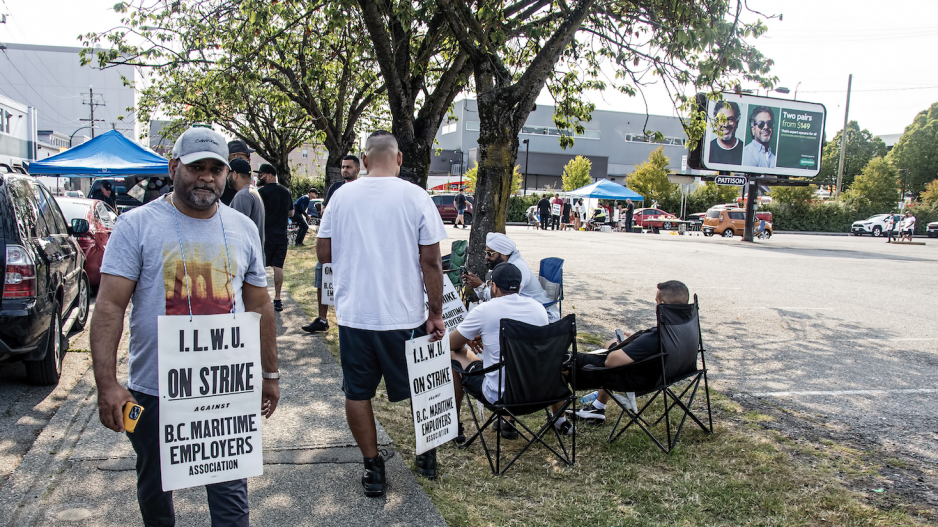A deal was finally agreed to late last week to end the labour dispute at the Port of Vancouver, but do not think that’s the last we have seen of job action and full-on strikes in various sectors across this province and the entire country.
In fact, we seem to be entering a time of uncertainty and dissatisfaction in workplaces the likes of which we have not experienced in decades.
A combination of a steady increase in the cost of living and all that comes with it (rising food and energy prices, to cite just two daily concerns) plus an ongoing rental housing crisis have built up pressure over the past few years on employees who may feel their employers have not allowed their salaries or wages to keep pace.
As a result, there have been more labour disruptions across the country and more may well lie ahead.
In B.C., we have experienced that 13-day port strike, which caused economic havoc, plus recent lengthy strikes at two transit companies in the Fraser Valley and the Sunshine Coast, plus a two-month strike by support workers at Capilano College.
About 200 unionized employees at Richmond hotels have been on strike for more than six weeks, and unionized employees at three major Â鶹´«Ã½Ó³»hotels have voted in favor of strike action.
Earlier this year, more than 150,000 federal public sector employees went on strike and now a major Ontario grocery chain finds itself behind picket lines. Last year, more than 50,000 Ontario education workers went on strike as well.
A little more than halfway through the year and Canada is on track for the most work stoppages and the most person-days lost because of those stoppages in years.
Aside from so many unionized workers wanting to “catch up” quickly after years of relatively small annual raises, a couple of other factors seem to be in play.
First the make-up of the labour force is changing. Members of the baby boomer generation, who are retiring in droves, were traditionally “married’ to their jobs and saw little movement from workplace to workplace.
Broadly speaking, younger generations such Gen Z and the millennials seem less tied to their workplace and seek greater mobility. Therefore, their willingness to engage in such things as strikes if they feel they are being treated unfairly seems to be higher.
Make no mistake: baby boomers went on strike as well, particularly during the 1970s and 1980s. But the labour scene has been fairly quiet on the job action front since then, with a few notable exceptions.
Hovering over all this is the economic uncertainty that lies ahead. Most recently we have seen massive layoffs in the telecom sector (6,000 at Telus and 1,300 at BCE Inc.) plus ongoing job losses in some resource industries (notably forestry in B.C.).
Nationally, Canada lost 6,400 jobs last month when the forecast had been a gain of more than 20,000. These are uncertain times.
Then there is the whole work-from-home shift for many companies and their workers, which gained lasting momentum when the pandemic changed so many things in so many places.
The workplace is indeed changing and so are the people in it. Frustration and high expectations are now on the table, and many workplaces may prove to be more disruptive in the months and years ahead.
Keith Baldrey is chief political reporter for Global BC.

.jpg;w=120;h=80;mode=crop)

